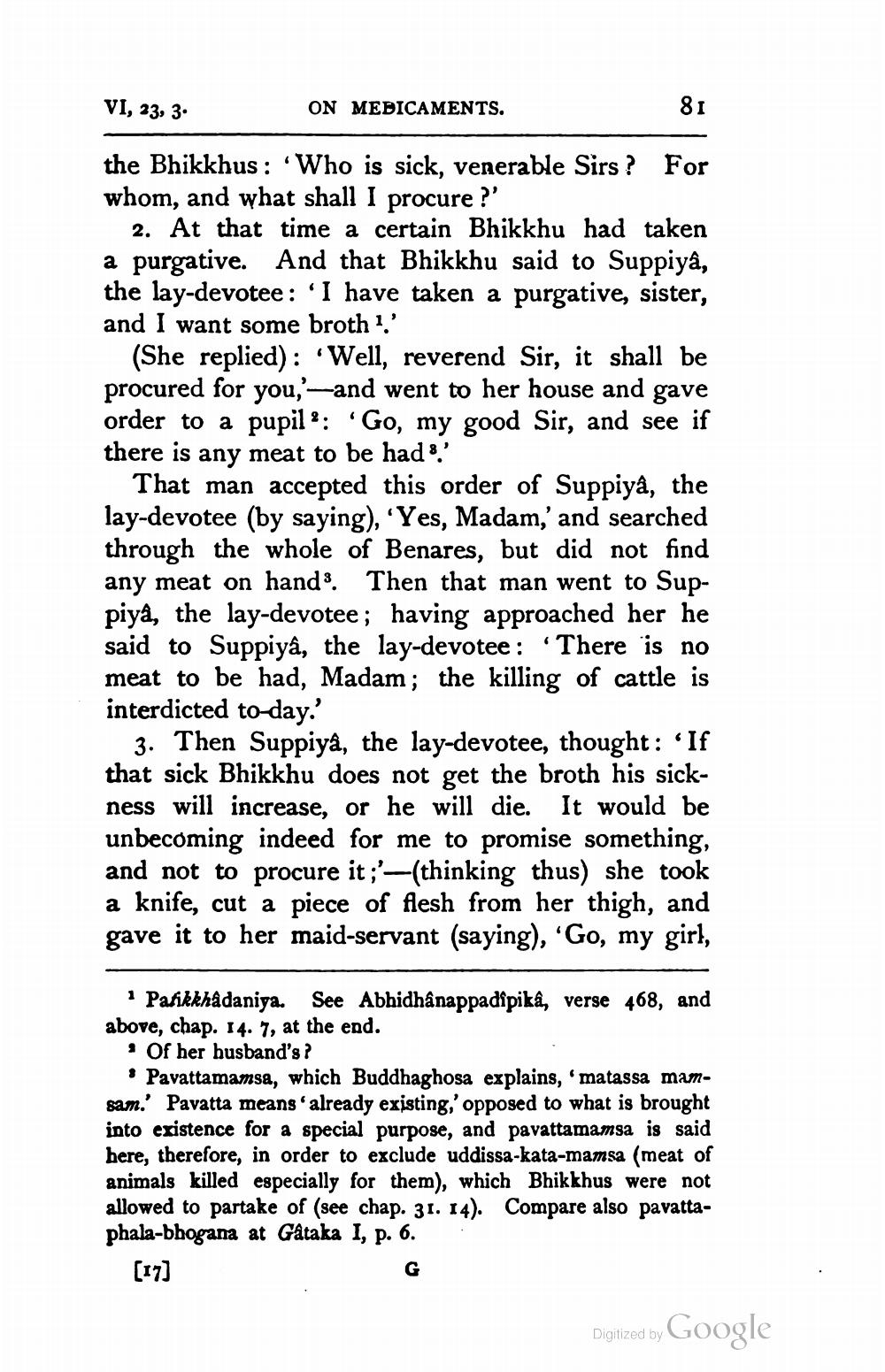________________
VI, 33, 3.
ON MEDICAMENTS.
81
the Bhikkhus : 'Who is sick, venerable Sirs ? For whom, and what shall I procure ?'
2. At that time a certain Bhikkhu had taken a purgative. And that Bhikkhu said to Suppiya, the lay-devotee: 'I have taken a purgative, sister, and I want some broth 1.'
(She replied): Well, reverend Sir, it shall be procured for you,'--and went to her house and gave order to a pupil :: 'Go, my good Sir, and see if there is any meat to be had 8'
That man accepted this order of Suppiya, the lay-devotee (by saying), Yes, Madam,' and searched through the whole of Benares, but did not find any meat on hands. Then that man went to Suppiya, the lay-devotee; having approached her he said to Suppiya, the lay-devotee: There is no meat to be had, Madam; the killing of cattle is interdicted to-day.'
3. Then Suppiya, the lay-devotee, thought: 'If that sick Bhikkhu does not get the broth his sickness will increase, or he will die. It would be unbecoming indeed for me to promise something, and not to procure it;'-(thinking thus) she took a knife, cut a piece of flesh from her thigh, and gave it to her maid-servant (saying), 'Go, my girl,
* Patikkhadaniya. See Abhidhânappadîpika, verse 468, and above, chap. 14. 7, at the end.
· Of her husband's ?
. Pavattamamsa, which Buddhaghosa explains, 'matassa mamsam.' Pavatta means already existing,' opposed to what is brought into existence for a special purpose, and pavattamamsa is said here, therefore, in order to exclude uddissa-kata-mamsa (meat of animals killed especially for them), which Bhikkhus were not allowed to partake of (see chap. 31. 14). Compare also pavattaphala-bhogana at Gataka I, p. 6.
[17]
Digitized by
Digitized by Google




